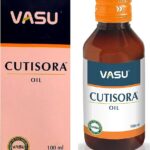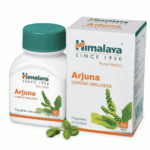Joint Pain
Joint Pain and Ayurveda
Joint pain is a common problem most people would experience. It may be a pain in the knee, hip, or spine. When joint pain is chronic, then it becomes a serious problem. Joint pain can occur due to wear and tear of the cartilages. It may occur due to injury or could be the result of a disease like arthritis. Whatever be the reason, joint pain can be debilitating. It can affect normal routines and make things difficult for the sufferer. While conventional medicines may provide immediate relief, they have side effects that are a concern. Ayurveda helps to offer safe and natural management for joint pain.
What Causes Joint Pain?
According to Ayurveda, joint pain results from an imbalance in Vata, the energy responsible for movement. Vyanavata imbalance can lead to circulation issues, depriving tissues of nourishment and causing joint wear. Shleshaka Kapha, responsible for joint lubrication, can be affected. Dosha imbalance weakens digestion, leading to toxin accumulation and joint pain. Ayurveda suggests managing joint pain by maintaining Dosha balance through therapies, dietary/lifestyle changes, and herbal supplements.
Ways to Prevent Joint Pain According to Ayurveda
Ayurveda offers various natural approaches to prevent joint pain. These methods focus on maintaining a balance in the body’s doshas (Vata, Pitta, Kapha) and promoting overall well-being:
- Mind-Body Practices: Incorporate stress-reducing techniques such as meditation and deep breathing to promote overall well-being.
- Yoga Asanas: Practice yoga postures specifically designed to strengthen muscles, improve flexibility, and support joint health.
- Balanced Diet: Emphasize a diet rich in warming, nourishing foods to pacify Vata and support bone health.
- Herbal Support: Integrate Ayurvedic herbs like Ashwagandha, Guggulu, or Boswellia for their anti-inflammatory and joint-nourishing properties.
- Regular Follow-up: Stay connected with an Ayurvedic practitioner for ongoing support and adjustments to your wellness plan.
What’s a List of Joint Pain Diseases?
Some Common Joint Pain Diseases Include:
Ankylosing Spondylitis
Inflammatory arthritis primarily affecting the spine.
Juvenile Idiopathic Arthritis (JIA)
Childhood arthritis with joint pain and swelling.
Lyme Disease
Bacterial infection from tick bites, causing joint pain and more.
Bursitis
Inflammation of fluid-filled sacs between tendons, bones, and muscles.
Tendinitis
Tendon inflammation due to overuse or injury.
Osteoporosis
Weakened bones leading to fractures and joint pain.
Septic Arthritis
Joint inflammation from bacterial or fungal infection.
How Ayurveda Can Help with Joint Pain?
Joint pain is a very common problem with many possible causes, which could be a result of injury arthritis, or consequences of an unhealthy lifestyle. Bone problems are not limited to the elderly, today also young people and adolescents suffer from pain in the bones and joints.
In Ayurveda, Vata dosha is responsible for bones and joints. Fact that bone joints consist of a lot of empty space – which is Vata by definition. The joints are deeply affected by the quality of the bone tissue, while in Ayurveda, the joints also have an important connection with the nerve tissue and the nervous system as a whole.
Which Parts of the Body Are Affected:
- Knees
- Ankles
- Shoulders
- Hip Joints
- Finger Bones
- Whole Human Skeletal System
- Knees
- Ankles
- Shoulders
- Hip Joints
- Finger Bones
- Whole Human Skeletal System
Why Choose Ayurveda for Joint Pain?
- Holistic Approach: Ayurveda addresses joint pain by considering the whole person, focusing on the interconnectedness of the body, mind, and spirit.
- Personalized Treatment: Tailors remedies based on an individual’s unique constitution or dosha, recognizing that the causes of joint pain can vary.
- Natural Remedies: Utilizes natural herbs, oils, and substances, often with fewer side effects compared to synthetic medications.
- Diet and Lifestyle Guidance: Emphasizes the role of a balanced diet and lifestyle in managing joint pain and preventing its recurrence.
- Panchakarma Therapy: Incorporates detoxification procedures to eliminate toxins, contributing to joint health and overall well-being.
- Herbal Formulations: Prescribes customized herbal formulations targeting inflammation and pain, offering a personalized approach to joint pain relief.
Ayurvedic Wellness for Joint Pain at Alveda
Our comprehensive approach to joint pain begins with a full-body checkup and a thorough consultation with an Ayurvedic doctor. The focus is on optimizing Agni (digestive fire) and eliminating Ama (toxins) for overall health. With our tailored solutions- we aim to provide long-term results, promoting a healthy body and a joyful life. From herbal medications to personalized Ayurvedic massage therapy and yoga, each method is carefully selected based on individual needs and the expert recommendations of our Ayurvedic doctors.
Meet the Ayurvedic Experts

- 5.0
Dr Sujal Torgal Patil
- EXP : 12 Years
– Bachelor of Ayurvedic Medicine & Surgery – Post graduate

- 5.0
Dr. HARSHA JOY
- EXP : 5 Years
Dr. Harsha Joy is a bona fide Ayurvedic Doctor presently

- 5.0
Dr. Sandeep Madaan
- EXP : 18 Years
I am Medicine Doctor (M.D.) Ayurveda, Chief Ayurveda Consultant, Aastha

- 5.0
Dr. Amol Patil
- EXP : 15 Years
Clinical experience : 15 Years Teaching experience : 15 years
Ready to embark on your Ayurvedic journey?
Click “Book a consultation” to connect with an Ayurvedic expert today.
Ayurvedic Products that Helps in Autoimmune Disease

Sri Sri Tattva Mahayogaraj Guggulu

Himalaya Shallaki

Baidyanath Singnad Guggulu

Dhootapapeshwar Yogaraj Guggul
Explaining the Ayurvedic perspective on balancing Doshas and using herbs and therapies for joint health.
Discussing the potential of Ayurvedic interventions in managing and alleviating symptoms of chronic joint diseases.
Providing insights into Ayurvedic dietary guidelines based on individual Doshas to support joint health.
Exploring herbs like ashwagandha, guggul, and turmeric known for their anti-inflammatory and joint-supportive properties.
Discussing daily routines, exercises, and practices like Abhyanga (oil massage) to promote overall joint health in line with Ayurvedic principles.






